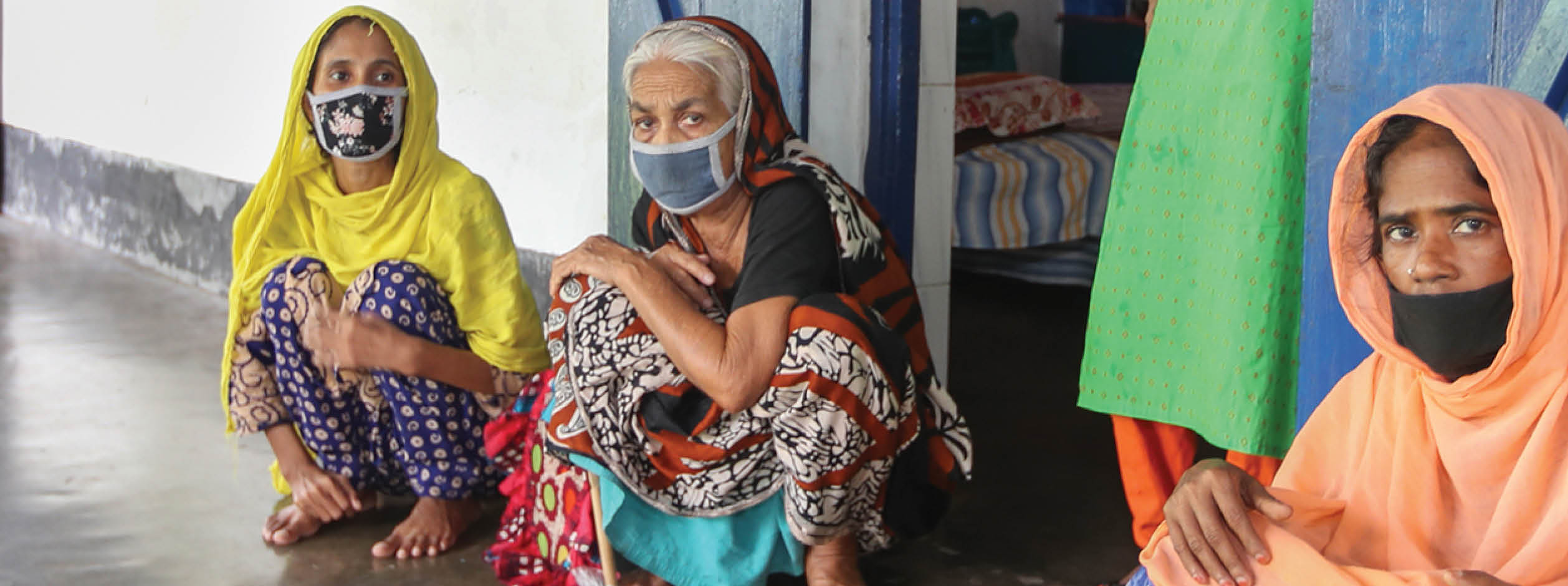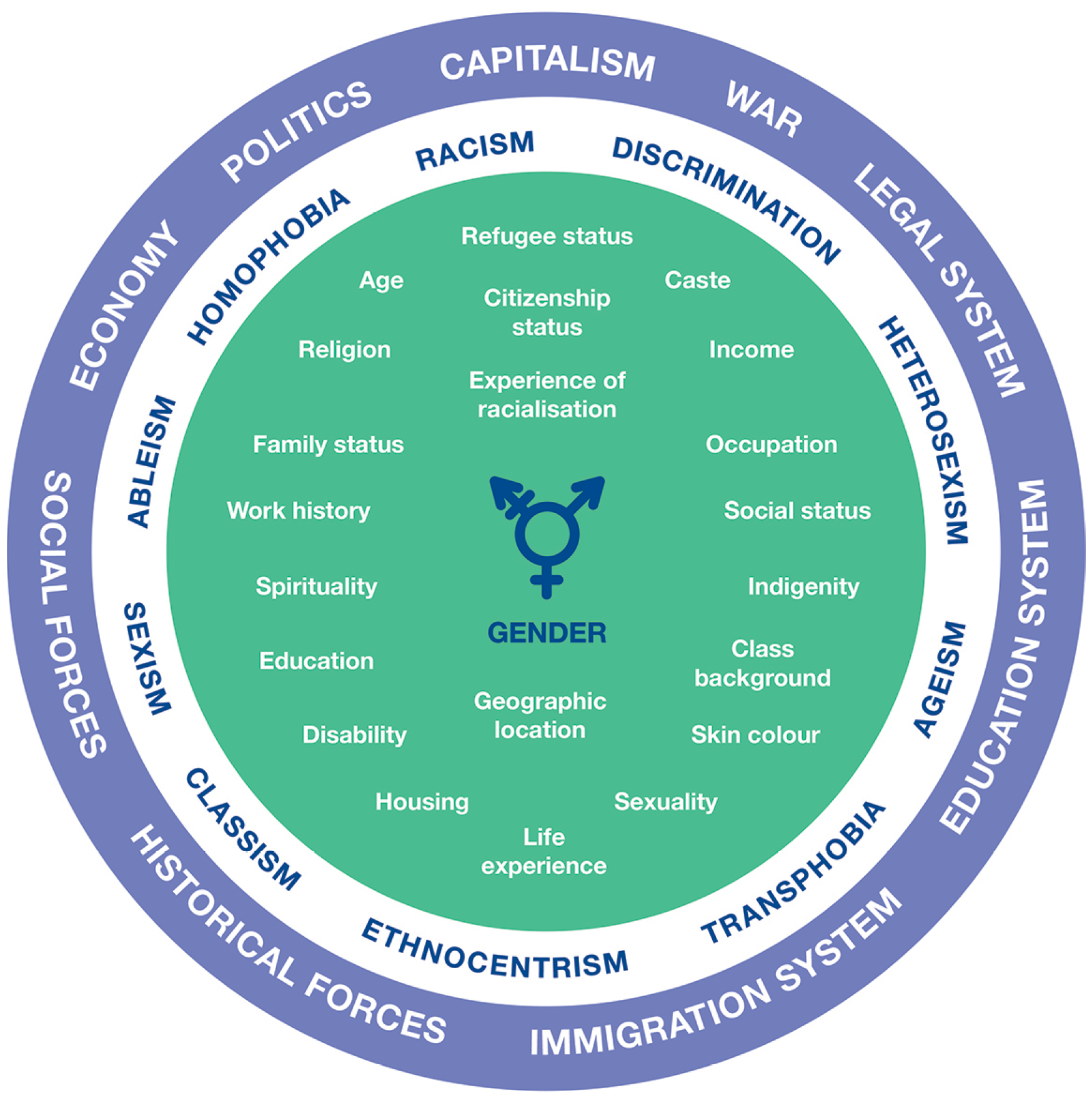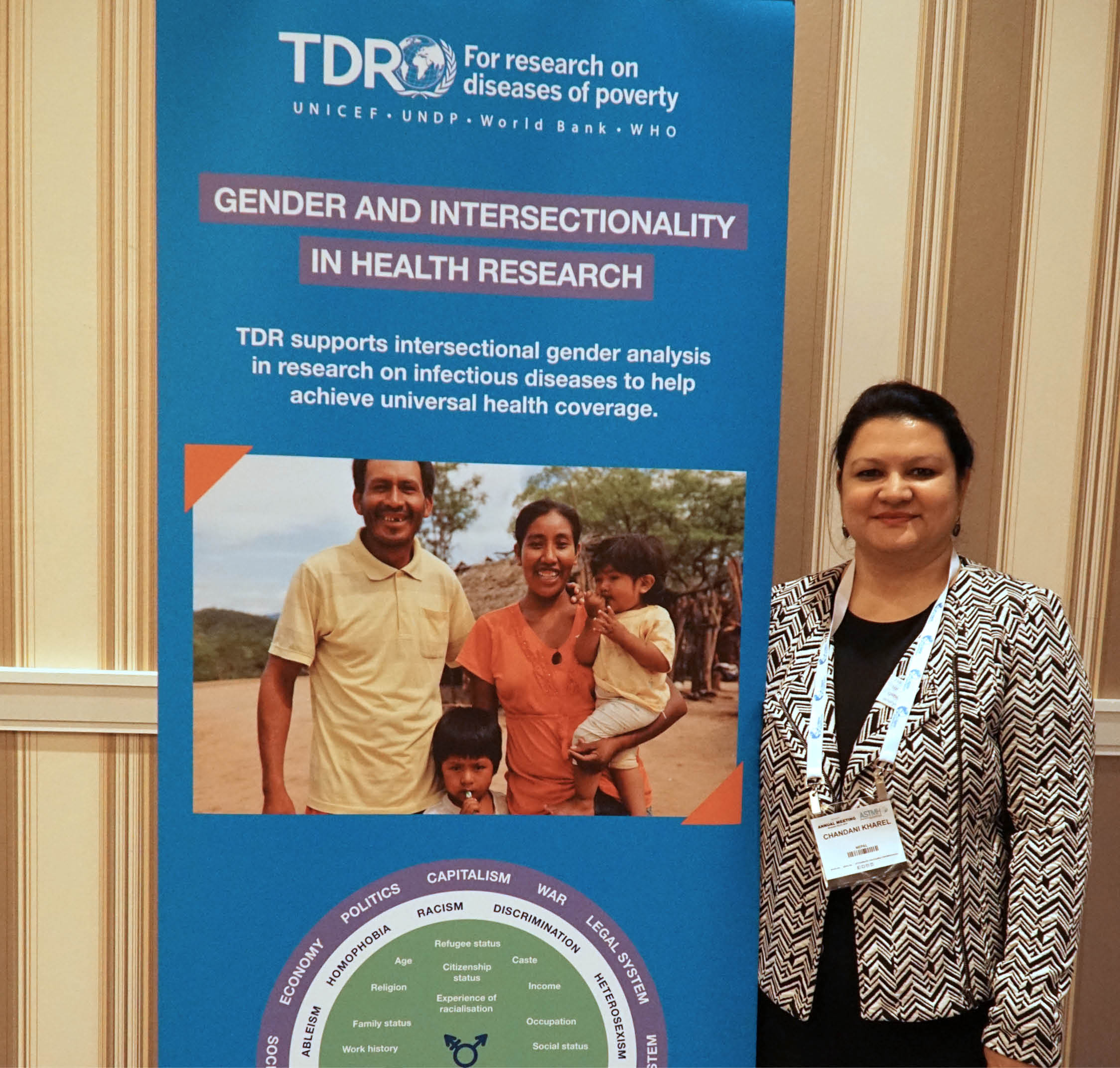



Research for
implementation
to reach vulnerable populations
and accelerate progress towards
universal health coverage

Tuberculosis patients at Jalchatra Hospital in Bangladesh

Promoting gender-responsive health interventions
to prevent and control infectious diseases
Building and sustaining research capacity of men and women scientists has been a core activity of TDR since its inception. This includes support for researchers through training courses and postgraduate programmes that develop leadership skills of scientists in low- and middle-income countries.
In recent years, TDR has also focused on building the capacity of scientists to investigate gender dimensions of health, which are often overlooked. There is a growing recognition that
Figure 1 How gender intersects with other social and economic characteristics that influence access to health services
and health outcomes. From TDR Toolkit: Incorporating intersectional gender analysis into research on infectious diseases
of poverty, forthcoming, adapted from Simpson, J. (2009). Everyone Belongs: A toolkit for applying intersectionality (1st ed.). Ottawa: Canadian Research Institute for the Advancement of Women (CRIAW). p. 5.
gender norms, roles, power relations, socioeconomic factors, and other drivers of inequality intersect with each other and influence access to health services and health outcomes.
This must be considered when designing and implementing health interventions and monitoring universal health coverage.
In response, TDR has developed tools to strengthen such research capacities, including an intersectional gender research toolkit and an online course on gender-based analysis.

The University of Ghana, School of Public Health, with support from TDR, has developed and pilot-tested an online course aimed at developing skills in gender-based analysis (GBA) for vector-borne diseases and climate change research.
The target audience for this training is researchers and policy-makers from disease endemic countries. Further to this, TDR supported a delivery method of learning that deviates from the traditional concept: that is, an innovative global classroom approach (use of online learning, web conferencing, video conferencing, discussion forum, blog moderation; use of social media for assignments). The course modules have gone through two rounds of peer review and have been piloted and offered at the University of Ghana and at the University of the Witwatersrand in South Africa in 2019.
Within the University of Ghana, the GBA online course has been integrated within existing gender and health courses offered at both undergraduate and postgraduate levels. This is expected to continue in 2020. In 2019, the University of Ghana also collaborated with the University of the Witwatersrand and the Association of Schools of Public Health in Africa to identify eligible African academic institutions (e.g. schools of public health) which may plan to integrate the GBA short course in one of the modalities listed above.
The University of the Witwatersrand is working to integrate modules from the GBA into a Master’s of Public Health (MPH) course on the social determinants of health: Health and society (COMH7221). The course is scheduled to run in February 2020.
Dr Chandani Kharel, who has been pilot-testing in Nepal the forthcoming TDR Toolkit: Incorporating intersectional gender analysis into research on infectious diseases of poverty, pictured here at the 2019 Annual Meeting of the American Society of Tropical Medicine & Hygiene.
Institutionalizing gender-based analysis in research on vector-borne diseases and climate change








